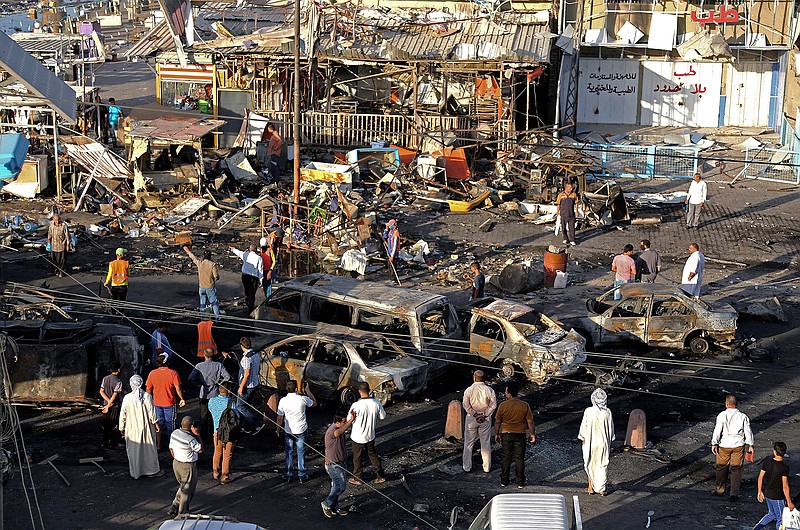WASHINGTON (AP) - U.S. officials say President Barack Obama has approved sending humanitarian supplies by air to thousands of religious minorities in Iraq who are under siege from Islamic militants.
But the officials say Obama has not made a final decision on whether the relief mission will be accompanied by U.S. airstrikes. Obama could announce his decisions as early as Thursday night.
The officials insisted on anonymity because they were not authorized to discuss matter by name ahead of the president.
Previous coverage:
BAGHDAD (AP) - Militants from the Islamic State group seized Iraq's largest hydroelectric dam on Thursday, giving them control of enormous power and water resources and leverage over the Tigris River that runs through the heart of Baghdad.
The fighting has trapped tens of thousands of members of religious minorities on a mountaintop, and the Obama administration was weighing possible airstrikes or airdrops of food and medicine to help them, according to U.S. defense officials and others familiar with the administration's thinking. They spoke on condition of anonymity because they were not authorized to discuss the matter.
Thursday's dam seizure was the latest in a string of victories by the Sunni radical group as it expands its hold in northern Iraq, driving back Kurdish forces, sending minority communities fleeing and unleashing bombings that have killed more than 90 people in the capital over the past two days.
After a week of attempts, the radical Islamist gunmen successfully stormed the Mosul Dam Thursday and forced Kurdish forces to withdraw from the area, residents living near the dam told The Associated Press. They spoke on condition of anonymity due to safety concerns.
The al-Qaida breakaway group posted a statement online Thursday, confirming it had taken control of the dam and vowing to continue "the march in all directions," as it expands the Islamic state, or Caliphate, it has imposed over broad swathes of territory straddling the Iraqi-Syrian border. The group said it has seized a total of 17 Iraqi cities, towns and targets - including the dam and a military base - over the past five days. The statement could not be verified but it was posted on a site frequently used by the group.
Halgurd Hekmat, a spokesman for the Kurdish fighters, told the AP that clashes around the dam were ongoing and he didn't know who currently had control over it.
The Sunni militant group has established its idea of an Islamic state in the territory it controls in Iraq and Syria, imposing its harsh interpretation of Islamic law. Iraqi government forces, Kurds and allied Sunni tribal militiamen have been struggling to dislodge the Islamic State militants and its Sunni allies with little apparent success.
The Mosul Dam - once known as the Saddam Dam for ousted dictator Saddam Hussein - is located just north of Iraq's second-largest city, Mosul, which fell to the militants on June 10. Fighting intensified in the region Sunday after the nearby towns of Zumar and Sinjar fell to the militants, exacerbating the country's humanitarian crisis as some 200,000 Iraqis joined the 1.5 million people already displaced from violence this year.
The Kurdish fighters, known as the peshmerga, had initially managed to stall the militant advances, but their defense has waned in recent weeks. On Monday, Prime Minister Nouri al-Maliki ordered the Iraqi air force to provide aerial support for the Kurds, in a rare show of cooperation between Baghdad and the Kurdish regional government that underscored the serious nature of the crisis.
The seizing of dams and reservoirs gives the militants control over water and electricity that they can use to help build support in the territory they now rule by providing the scarce resources to residents. Or they could sell the resources as a lucrative source of revenue.
There are also fears the militants could release the dam waters and devastate the country all the way to the capital Baghdad, though maintaining the dam's power and water supplies is key to their attempts to build a state.
"It's difficult to imagine that the dam will not be immediately contested - it's real strategic property," Ramzy Mardini, an Iraq expert with the Washington-based Atlantic Council, said of Thursday's Mosul Dam seizure. "With the dam in its control, the Islamic State can use water as a coercive tool in creating dependency or as a deterrent threat hovering in the background. It could potentially flood Baghdad or cut off its supply."

